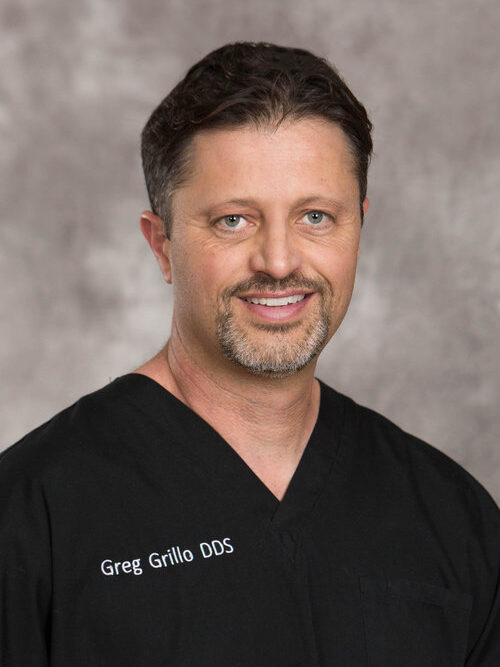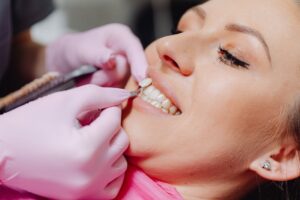A wise person once said “Happiness is a baby’s first toothless smile.” But as you probably know, babies are not really toothless. All babies are born with teeth, they just haven’t erupted or come in yet. Please keep reading to learn more about how many baby teeth are there and how many you lose.
How many teeth do kids have?
At the time they are born, most babies have 20 primary teeth, also called milk teeth or baby teeth.
What age do baby teeth come in?
In most babies, the teeth start to erupt or come in at around 6 months of age. However, some babies are born with their first teeth already erupted. While 6 months is the average age for baby teeth to erupt, it can happen anytime between the ages of 4 months and 12 months. Most children have a full set of 20 baby teeth by age 36 months.
Do you lose all 20 baby teeth?
Yes, you lose all 20 baby teeth between the ages of 6 and 12 years. By age 12 years, most kids have lost their primary teeth and have a full set of adult teeth.
Which milk teeth do you lose first?
The first baby teeth to fall out are usually the top two and bottom two front teeth (upper and lower central incisors).
What happens if primary teeth do not fall out?
In most people, the primary teeth or baby teeth fall out, and by age 21, a full set of 32 adult teeth is present in the mouth. However, sometimes primary teeth do not fall out and these are called retained primary teeth. If you still have a baby tooth as an adult (a retained primary tooth), it can be treated with an extraction (tooth removal). Your dentist will put a spacer in place in the vacant area until your permanent tooth erupts. If no permanent tooth is present, your dentist can place a dental implant.
What is the best age for the first dental visit?
Your child should have their first dental visit no later than 12 months of age. Baby teeth may be temporary, but they are subject to many of the same problems as permanent teeth, including cavities and tooth decay. Early dental care can help prevent serious issues, allow your child to enjoy healthy teeth, chew properly, talk clearly, and smile with confidence.
The best way to ensure your child enjoys a healthy mouth is to encourage brushing of teeth twice a day and take your child to the dentist regularly. Here are some tips on making teeth brushing a healthy habit in kids. If you’re looking for a pediatric dentist in your area, Express Dentist has a trusted network of family dental professionals nationwide. Get in touch with us today and we’ll help you find a dentist for your child.
About the author

Dr. Greg Grillo
Dr. Greg Grillo DDS studied at the University of Washington where he received a bachelors degree with Honors and later attended dental school on the same campus. Following school Dr. Greg served in the United States Navy as a dental officer. During this time he received advanced training in specialty areas of dentistry while also treating families of members of the military.
As well as sharing valuable information on dentistry and oral health, Dr. Greg remains a practicing dentist to this day. He works with families in the Okanogan Valley where he lives with his wife and three children.
- Dr. Greg Grillo
- Dr. Greg Grillo
- Dr. Greg Grillo
- Dr. Greg Grillo
- Dr. Greg Grillo
- Dr. Greg Grillo
- Dr. Greg Grillo
- Dr. Greg Grillo
- Dr. Greg Grillo
- Dr. Greg Grillo
- Dr. Greg Grillo
- Dr. Greg Grillo
- Dr. Greg Grillo
- Dr. Greg Grillo
- Dr. Greg Grillo
- Dr. Greg Grillo
- Dr. Greg Grillo
- Dr. Greg Grillo
- Dr. Greg Grillo
- Dr. Greg Grillo
- Dr. Greg Grillo
- Dr. Greg Grillo
- Dr. Greg Grillo
- Dr. Greg Grillo
- Dr. Greg Grillo
- Dr. Greg Grillo
- Dr. Greg Grillo
- Dr. Greg Grillo
- Dr. Greg Grillo
- Dr. Greg Grillo
- Dr. Greg Grillo
- Dr. Greg Grillo
- Dr. Greg Grillo
- Dr. Greg Grillo
- Dr. Greg Grillo
- Dr. Greg Grillo
- Dr. Greg Grillo
- Dr. Greg Grillo
- Dr. Greg Grillo
- Dr. Greg Grillo
- Dr. Greg Grillo
- Dr. Greg Grillo
- Dr. Greg Grillo
- Dr. Greg Grillo
- Dr. Greg Grillo
- Dr. Greg Grillo
- Dr. Greg Grillo
- Dr. Greg Grillo
- Dr. Greg Grillo
- Dr. Greg Grillo
- Dr. Greg Grillo
- Dr. Greg Grillo
- Dr. Greg Grillo
- Dr. Greg Grillo
- Dr. Greg Grillo
- Dr. Greg Grillo
- Dr. Greg Grillo
- Dr. Greg Grillo
- Dr. Greg Grillo
- Dr. Greg Grillo
- Dr. Greg Grillo
- Dr. Greg Grillo
- Dr. Greg Grillo
- Dr. Greg Grillo
- Dr. Greg Grillo
- Dr. Greg Grillo
- Dr. Greg Grillo
- Dr. Greg Grillo
- Dr. Greg Grillo
- Dr. Greg Grillo
- Dr. Greg Grillo
- Dr. Greg Grillo
- Dr. Greg Grillo
- Dr. Greg Grillo
- Dr. Greg Grillo
- Dr. Greg Grillo
- Dr. Greg Grillo
- Dr. Greg Grillo
- Dr. Greg Grillo
- Dr. Greg Grillo
- Dr. Greg Grillo
- Dr. Greg Grillo
- Dr. Greg Grillo
- Dr. Greg Grillo
- Dr. Greg Grillo
- Dr. Greg Grillo
- Dr. Greg Grillo
- Dr. Greg Grillo
- Dr. Greg Grillo
- Dr. Greg Grillo
- Dr. Greg Grillo




